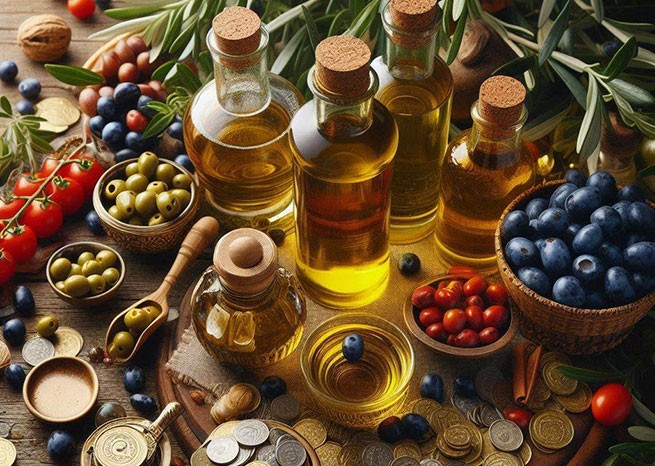According to estimates by the Scientific Society of Olive Growing (4E), a group of Greek scientists and marketers specializing in olive oil production, world olive oil production, if no shocking events occur, will “touch” 3,000 – 3,200 thousand tons.
The forecasts apply to a growing season that will not be disrupted by unexpected weather events.
One hundred days after the first estimates of world olive oil production for the 2024/25 harvest and the analysis of the data obtained, 4E has concluded that, despite the revision of production volumes in some oil-producing countries, the basic picture of Spanish and world production will remain within the same limits. Estimated olive oil production for the 2024-25 harvest (quantity in thousands of tons):
- Spain 1,300 – 1,500
- Türkiye 300 – 320
- Greece 230 – 290 (250)
- Tunisia 260 – 280
- Italy 180 – 200
- Portugal 160 – 180
- Morocco 110 – 140
- Syria 90 – 100
- Other countries 550 – 650
- Estimated world production 3000 – 3200.
How production fluctuated in previous years
The figures above for this year's season mean that after three years of drought and adverse weather conditions, global production is expected to – barring a catastrophic last-minute shock – will return to normal levels. Prices will fall to €5-5.5/kg on the wholesale market.
It is therefore logical to assume that raw material prices (wholesale, off-tank) will decline, especially as tanks are replenished at factories, in trade and in the standardization industry after December 2024.
A producer price in the range of €5-5.5/kg for medium quality extra virgin can be considered “reasonable” under the above circumstances. For example, the producer price (tanker at the factory door) started at €9/kg and was sold at €7-7.5/kg.
What role will consumption play?
However, consumption is expected to be the main determinant. In the last two marketing periods, the sharp rise in olive oil prices has led to a significant portion of olive oil consumption, between 30 and 40%, being “migrated” to competing seed oils or even limited to various uses in both mass and home cooking.
The big “gamble” for olive oil is to restore this consumption as quickly as possible. Otherwise, the imbalance with excess supply will put downward pressure on producer prices. Therefore, lowering prices on retail shelves, as well as actions to stimulate consumption, are vital for the balance of the entire sector and in the interests of olive producers.
Olive oil accounts for less than 1.5% of global production and consumption of oils and fats. Therefore, cooperation between all producing countries, participants in the value chain and scientists is vital.
Earlier, government spokesman Pavlos Marinakis announced that VAT reduction on olive oil “fake news”According to Marinakis, press reports do not correspond to reality. A government spokesman categorically stated at a briefing for political editors that “VAT on olive oil will not decrease”As the official noted, a series of interventions in product prices were carried outbut reports that the government wants to reduce VAT are not true.







More Stories
Thessaloniki: Man convicted of using fake diploma
The prosecutor's office is studying photographs showing unknown persons damaging railway tracks
Thessaloniki: Man smashes neighbor's car with axe